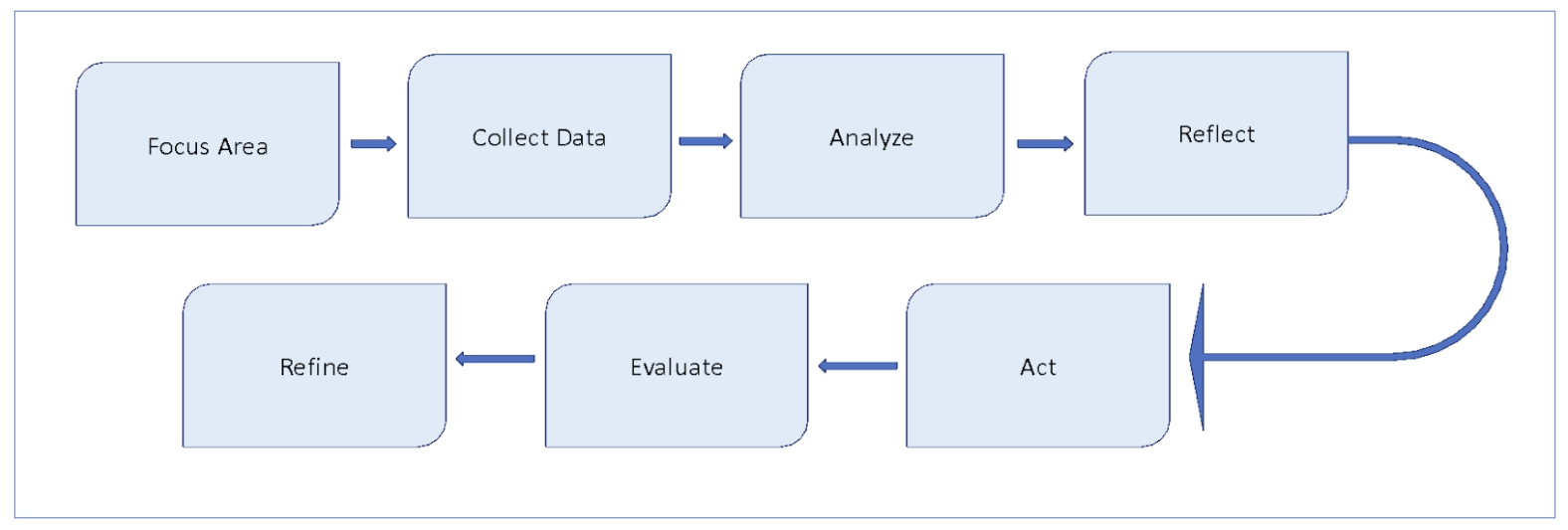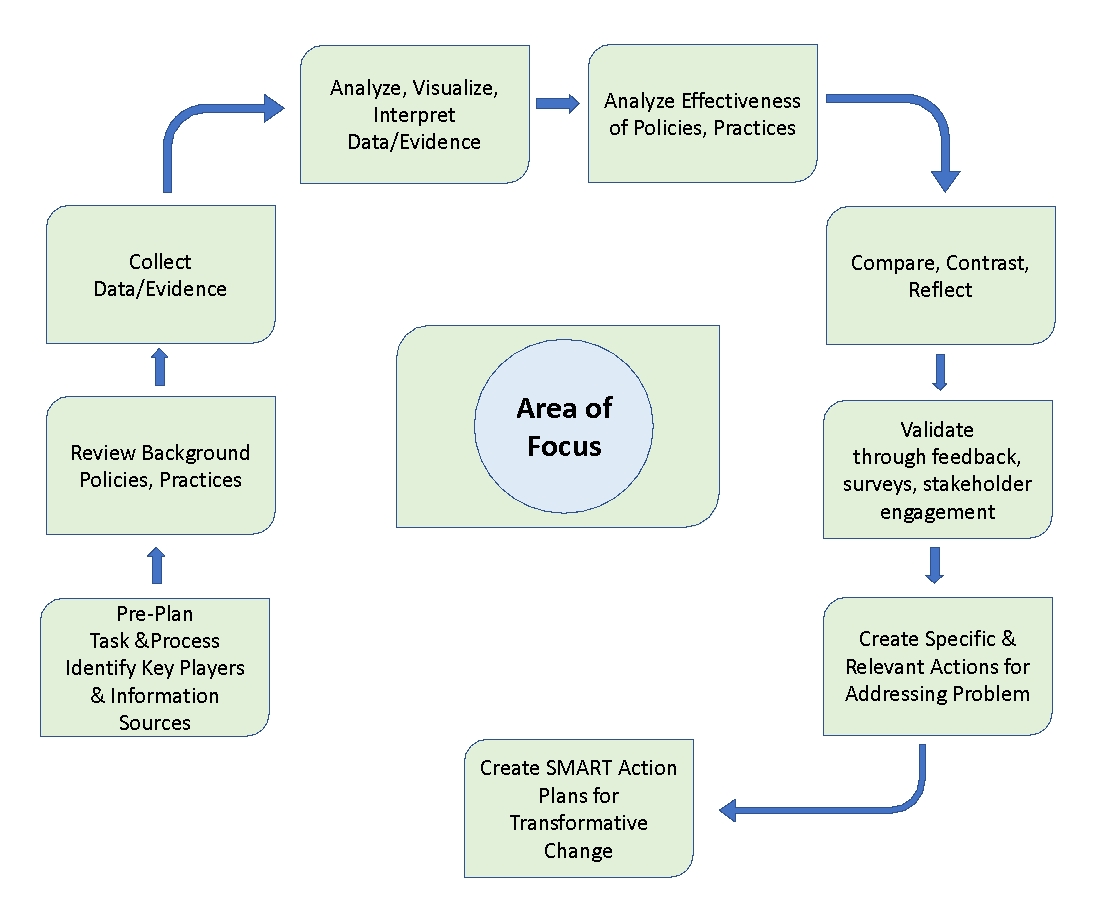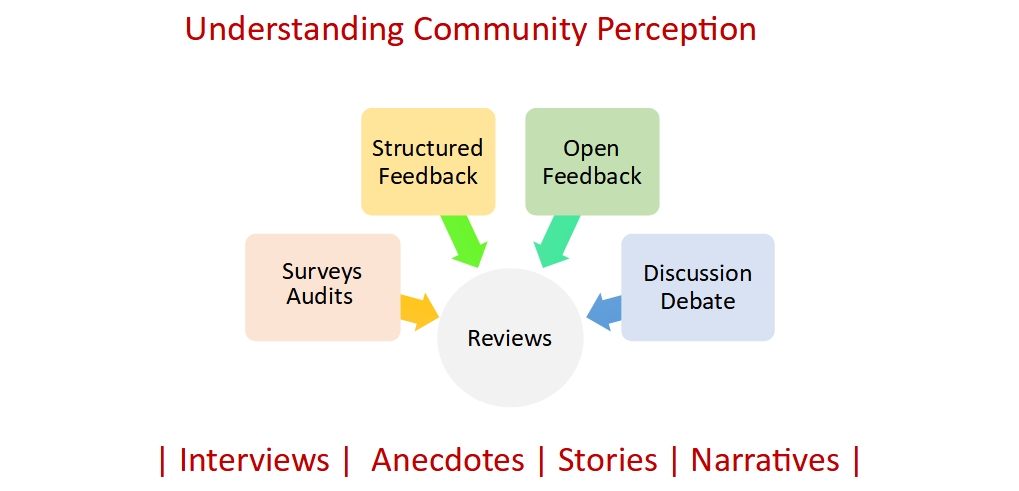
The GATI Self-assessment process is designed as an instrument for organizational change. It follows the well-established methodology of Experiential Learning and Action Research.
The GATI Charter highlights the issues that need to be addressed as institutions aim to move towards gender equity. The impediments to women’s equal participation are multi-dimensional. While there is a great deal of commonality, underpinning problems and reasons thereof are situated in the context of individual institutions. These manifest in varying degrees. The first step towards organizational transformation is to identify the problems, collect data and evidence to establish the nature of problems, anlayze evidence to diagnose, reflect on what needs to be done to resolve the problems, and create specific and relevant action plans. The entire process is action oriented towards ushering transformative change. Per se, the task is challenging; the process loop of Analyze-Reflect-Act invariably needs iterative refinement based on feedback and impact evaluation. The process-loop is depicted below.

The GATI Self-assessment Application is inherently structured as an instrument for action research. Each Criteria and Sub-Criteria therein presents a well-defined area of focus and a structured process of enquiry and subsequent action. Responses to Criteria and Sub-Criteria therein include:
A qualitative description/review of prevailing Policies, Processes, Procedures, Practices; Collection of Quantitative Data and Qualitative Information along specified dimensions through specially designed Data Templates; Analysis and Reflection that would include further information gathered through community engagement. It would entail administering feedback surveys, stakeholder discussions/interviews and other modes of interaction to arrive at a deeper understanding unraveled by the data and evidence collected. These processes of in-depth analysis and reflection have to be designed internally by the institution; Creating Specific and Relevant Action Plans emanating from the understanding of issues and problems that need to be addressed in order to achieve the objectives of the charter. Some of these would have cross-cutting relevance across Criteria.
In the limited duration of the GATI pilot, it may not be feasible for the participating institutions to address all the identified problems/issues or ensure implementation of all the ‘specific and relevant’ action plans that emanate for each Criteria. However, the emanating actions would provide the building blocks for comprehensive plans that can make significant impact.
Institutions are required to create a prioritized list of Action Plans that can be implemented in (i) the short-term and (ii) the long-term as part of institution’s strategic vision for gender advancement. Tangible and operational, these Action Plans would per force be Specific, Measurable, Achievable, Relevant and Time-bound (SMART). Criteria 7 seeks a prioritized list of these SMART Action Plans with details on how the institution plans to implement these over a period of time.
Each Criteria will entail following the process model depicted below. This can be fine-tuned for specific areas of focus or sub-criteria.

Confidentiality of data and information
Collection of data, evidence and information runs as the backbone of the self-assessment process. Feedback and survey instruments, interviews, dialogues and discussions would generate rich data. Many questions will seek personal opinions and experiences. There is need to ensure that confidentiality of survey responses will be maintained. It is important to establish protocols that will protect Personally Identifiable Information. For small sized sample groups, such as in small departments, or where women or men are in minority, special care has to be taken to protect identifiable information using well established statistical practices.



